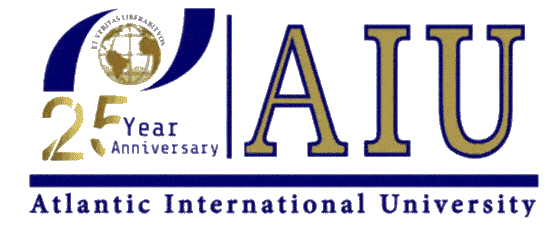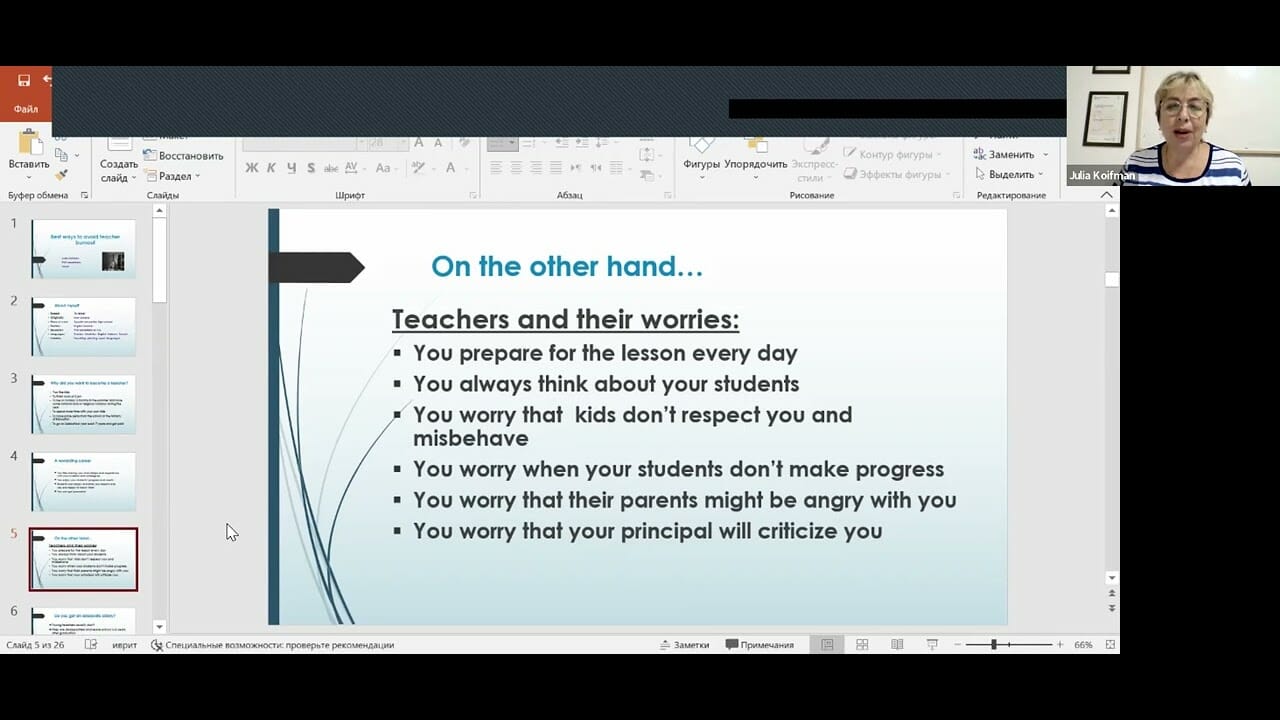- RESEARCHDistance Learning at AIU is enhanced by vast academic resources and innovative technologies build into the Virtual Campus: Hundreds of self-paced courses with video lectures and step by step lessons, thousands of optional assignments, 140,000 e-books, the Social Media & Networking platform allowing collaboration/chat/communications between students, and MYAIU develop students holistically in 11 areas beyond just academics.
- PROGRAMS OFFERED
- Areas of Study
- Courses and Curriculum
- Open Courses
- Register for a Program
- Certificate Program
-
Associate program
- Associate in Actuarial Science
- Associate in Addiction Counseling
- Associate in Agriculture Food And Resources
- Associate in Animal Science
- Associate in Anti Terrorism Security
- Associate in Behavior Analysis In Special Education
- Associate in Bioethics
- Associate in Biosystems
- Associate in Blockchain Technology & Digital Currency
- Associate in Business Communication
- Associate in Business Management
- Associate in Chemistry
- Associate in Climatology
- Associate in Cloud Computing
- Associate in Computer Engineering
- Associate in Computer Programming
- Associate in Computer Science
- Associate in Criminal Justice
- Associate in Culinary Arts
- Associate in Cultural Theological Communication
- Associate in Cybersecurity And Hacking
- Associate in Data Communication And Networking
- Associate in Database Administrator
- Associate in Early Childhood Education
- Associate in Ecotechnology
- Associate in Ecotourism
- Associate in Education
- Associate in Educational Technology
- Associate in Electric Vehicle Engineering
- Associate in Electrochemical Engineering
- Associate in Electronic Engineering
- Associate in English Literature
- Associate in Environmental Science
- Associate in eVTOL Engineering
- Associate in Fashion Design
- Associate in Fine Arts
- Associate in Foreign Trade
- Associate in Genetic Engineering
- Associate in Geography
- Associate in Geology
- Associate in Geophysical Sciences
- Associate in Graphic Design
- Associate in Health Sciences
- Associate in History
- Associate in Human Resources
- Associate in Integrated Water Management
- Associate in International Finance
- Associate in International Marketing
- Associate in Islamic Studies
- Associate in Kinesiology And Physiotherapy
- Associate in Library technology
- Associate in Linguistics
- Associate in Management
- Associate in Management Information Systems
- Associate in Maritime Management
- Associate in Metallurgy
- Associate in Micro and Multimode Grid Design
- Associate in Modern Power and Energy Systems
- Associate in Multimedia Design and Digital Art
- Associate in Nutrition
- Associate in Oil Gas And Energy Engineering
- Associate in Operations Management
- Associate in Optoelectronic Systems
- Associate in Organizational Development
- Associate in Organizational Diversity
- Associate in Pedagogical Training For Professionals
- Associate in Physical Culture And Sports
- Associate in Physics
- Associate in Public Health
- Associate in Quantum Computing Technology
- Associate in Radio And Television Production
- Associate in Scenography
- Associate in Social Media Marketing
- Associate in Sociology
- Associate in Sports Marketing
- Associate in Sports Psychology
- Associate in Sustainable Design and Construction
- Associate in Sustainable Materials Science
- Associate in Sustainable Natural Resources Management
- Associate in Sustainable Tourism
- Associate in Synthetic Biology
- Associate in Virtual Archival Science
- Associate of Adult Education
- Associate of Advertising
- Associate of Agriculture
- Associate of American History
- Associate of Biology
- Associate of Chemical Engineering
- Associate of Civil Engineering
- Associate of Communications
- Associate of Construction Management
- Associate of Economics
- Associate of Educational Administration
- Associate of Electrical Engineering
- Associate of Finance
- Associate of Healthcare Administration
- Associate of Human Resources Management
- Associate of Humanities
- Associate of Hydrology
- Associate of Industrial Engineering
- Associate of Information Systems
- Associate of Information Technology
- Associate of Interior Design
- Associate of International Relations
- Associate of Journalism
- Associate of Legal Studies
- Associate of Logistics
- Associate of Marketing
- Associate of Mass Media and Communication
- Associate of Mathematics
- Associate of Mechanical Engineering
- Associate of Mining Engineering
- Associate of Music
- Associate of Nutrition Science
- Associate of Philosophy
- Associate of Physical Education
- Associate of Political Science
- Associate of Project Management
- Associate of Psychology
- Associate of Renewable Energy
- Associate of Software Engineering
- Associate of Sport Science
- Associate of Statistics
- Associate of Strategic Management
- Associate of Technical Writing
- Associate of Telecommunications
- Associate of Theater
- Associate of Theology
- Associate of Tourism Planning and Development
- Associate of Travel and Tourism
- Associate of Unmanned Areal Systems Engineering
- Associates in Artificial Intelligence
- Associates in Engineering Systems
- Associates in Physical Anthropology
- Associates in Social Sciences
- Associates in Sociocultural Anthropology
- Associates in Systems Engineering
- Associates of Accounting
- Associates of Anthropology
- Associates of Archeology
- Associates of Architecture
- Associates of Art History
- Associates of Banking and Finance
- Associates of Business Administration
- Associates of Public Administration
- Associates of Science
- Associates of Urban Planning
- Associates of Visual and Performing Arts
- Micro and Multimode Grid Design
-
Bachelor Program
- Bachelor in Data Communication and Networking
- Bachelor in Actuarial Science
- Bachelor in Addiction Counseling
- Bachelor in Agriculture, Food and Resources
- Bachelor in Animal Science
- Bachelor in Anthropology
- Bachelor in Anti Terrorism Security
- Bachelor in Artificial Intelligence
- Bachelor in Arts in Cultural Theological Communication
- Bachelor in Autonomous Vehicle Technology
- Bachelor in Bachelor of Bioethics (BA)
- Bachelor in Behavior Analysis in Special Education
- Bachelor in Bibliotechnology
- Bachelor in Biosystems
- Bachelor in Blockchain Technology & Digital Currency
- Bachelor in Business Communication
- Bachelor in Business Management
- Bachelor in Chemistry
- Bachelor in Cloud Computing
- Bachelor in Computer Science
- Bachelor in Criminal Justice
- Bachelor in Culinary Arts
- Bachelor in Cybersecurity and Hacking
- Bachelor in Database Administrator (BS)
- Bachelor in Ecotechnology
- Bachelor in Ecotourism
- Bachelor in Education (B.Ed, BS)
- Bachelor in Educational Technology
- Bachelor in Electric Vehicle Engineering
- Bachelor in Electrochemical Engineering
- Bachelor in English Literature
- Bachelor in eVTOL Engineering
- Bachelor in Fashion Design (BA)
- Bachelor in Fine Arts
- Bachelor in Foreign Trade
- Bachelor in Genetic Engineering
- Bachelor in Geology
- Bachelor in Geophysical Sciences
- Bachelor in Graphic Design
- Bachelor in Health Sciences
- Bachelor in Integrated Water Management
- Bachelor in International Finance
- Bachelor in International Marketing
- Bachelor in Islamic Studies
- Bachelor in Kinesiology and Physiotherapy
- Bachelor in Linguistics
- Bachelor in Management
- Bachelor in Metallurgy
- Bachelor in Micro and Multimode Grid Design
- Bachelor in Modern Power and Energy Systems
- Bachelor in Multimedia Design and Digital Art
- Bachelor in Nutrigenetics
- Bachelor in Operations Management (BA)
- Bachelor in Optoelectronic Systems
- Bachelor in Organizational Development
- Bachelor in Organizational Diversity
- Bachelor in Pedagogical Training for Professionals
- Bachelor in Physical Anthropology
- Bachelor in Physical Culture And Sports
- Bachelor in Physics
- Bachelor in Public Relations
- Bachelor in Quantum Computing Technology
- Bachelor in Radio And Television Production
- Bachelor in Scenography
- Bachelor in Social Media Marketing
- Bachelor in Social Sciences
- Bachelor in Sociocultural Anthropology
- Bachelor in Sport Management
- Bachelor in Sports Marketing
- Bachelor in Sports Psychology
- Bachelor in Sustainable Design and Construction
- Bachelor in Sustainable Materials Science
- Bachelor in Sustainable Natural Resources Management
- Bachelor in Sustainable Tourism
- Bachelor in Synthetic Biology
- Bachelor in Virtual Archival Science
- Bachelor of Adult Education
- Bachelor of Advertising
- Bachelor of Animation
- Bachelor of Art History
- Bachelor of Biohacking and Nutrigenomics
- Bachelor of Educational Administration
- Bachelor of Healthcare Administration
- Bachelor of Human Resources Management
- Bachelor of Humanities
- Bachelor of Hydrology
- Bachelor of Information Technology
- Bachelor of Journalism
- Bachelor of Mass Media and Communication
- Bachelor of Mathematics
- Bachelor of Philosophy
- Bachelor of Physical Education
- Bachelor of Project Management
- Bachelor of Public Administration
- Bachelor of Software Engineering
- Bachelor of Sport Science
- Bachelor of Sports Science
- Bachelor of Statistics
- Bachelor of Strategic Management
- Bachelor of Technical Writing
- Bachelor of Theater
- Bachelor of Theology
- Bachelor of Tourism Planning and Development
- Bachelor of Travel and Tourism
- Bachelor of Unmanned Areal Systems Engineering
- Bachelor of Urban Planning
- Bachelor of Visual and Performing Arts
- Bachelor of Web Design
- Bachelors in Energy Storage and Battery Technology
- Bachelors in Accounting
- Bachelors in Accounting & Finance
- Bachelors in Agronomy Engineering
- Bachelors in Architecture
- Bachelors in Banking and Finance
- Bachelors in Biology
- Bachelors in Business Administration
- Bachelors in Chemical Engineering
- Bachelors in Civil Engineering
- Bachelors in Communications
- Bachelors in Computer Engineering
- Bachelors in Criminal Justice
- Bachelors in Early Childhood Education
- Bachelors in Economics
- Bachelors in Electrical Engineering
- Bachelors in Electronic Engineering
- Bachelors in Engineering
- Bachelors in Environmental Science
- Bachelors in Finance
- Bachelors in Finance and Banking
- Bachelors in History
- Bachelors in Hospitality Management
- Bachelors in Human Resources
- Bachelors in Industrial Engineering
- Bachelors in Information Systems
- Bachelors in Interior Design
- Bachelors in International Business
- Bachelors in International Relations
- Bachelors in Legal Studies
- Bachelors in Logistics
- Bachelors in Marketing
- Bachelors in Mechanical Engineering
- Bachelors in Mining Engineering
- Bachelors in Music
- Bachelors in Nutrition
- Bachelors in Oil Gas and Energy Engineering
- Bachelors in Political Science
- Bachelors in Psychology
- Bachelors in Public Health
- Bachelors in Renewable Energy
- Bachelors in Sociology
- Bachelors in Systems Engineering
- Bachelors in Telecommunications
- Bachelors in Zoology
-
Doctorate Program
- DBA – Doctor of Business Administration
- Doctor | in Actuarial Science
- Doctor | in Agriculture Food And Resources
- Doctor | in Animal Science
- Doctor | in Biosystems
- Doctor | in Cultural Theological Communication
- Doctor | in Cybersecurity And Hacking
- Doctor | in Early Childhood Education
- Doctor | in Ecotechnology
- Doctor | In Ecotourism
- Doctor | In Educational Technology
- Doctor | In Electronic Engineering
- Doctor | In Foreign Trade
- Doctor | of Biology (PhD)
- Doctor in Addiction Counseling
- Doctor in Behavior Analysis In Special Education
- Doctor in Bibliotechnology
- Doctor in Business Management
- Doctor in Data Communication And Networking
- Doctor of Adult Education
- Doctor of Agriculture
- Doctor of American History
- Doctor of Animation
- Doctor of Anthropology
- Doctor of Archaeology
- Doctor of Architecture (Ph.D.)
- Doctor of Art History
- Doctor of Artificial Intelligence
- Doctor of Autonomous Vehicle Technology
- Doctor of Biohacking and Nutrigenomics
- Doctor of Business Management (DBM)
- Doctor of Civil Engineering (D.Sc)
- Doctor of Cloud Computing
- Doctor of Economics (PhD)
- Doctor of Educational Administration (PhD)
- Doctor of Electric Vehicle Engineering
- Doctor of Electrical Engineering (D.Sc, PhD)
- Doctor of Electrochemical Engineering
- Doctor of Engineering Systems (D.Sc)
- Doctor of eVTOL Engineering
- Doctor of Finance (PhD)
- Doctor of Humanities
- Doctor of Hydrology
- Doctor of Industrial Engineering (D.Sc)
- Doctor of International Relations (D.Sc)
- Doctor of Legal Studies (PhD)
- Doctor of Logistics
- Doctor of Mass Media and Communication
- Doctor of Mechanical Engineering (D.Sc)
- Doctor of Micro and Multimode Grid Design
- Doctor of Mining Engineering
- Doctor of Music
- Doctor of Nutrition Science
- Doctor of Optoelectronic Systems
- Doctor of Project Management (PhD)
- Doctor of Public Administration
- Doctor of Public Health (PhD, D.Sc)
- Doctor of Quantum Computing
- Doctor of Renewable Energy
- Doctor of Sociology (PhD, D.Sc)
- Doctor of Software Engineering
- Doctor of Sport Management
- Doctor of Sport Science
- Doctor of Statistics
- Doctor of Technical Writing
- Doctor of Telecommunications (D.Sc)
- Doctor of Theater
- Doctor of Tourism Planning and Development
- Doctor of Travel and Tourism
- Doctor of Unmanned Aerial Systems Engineering
- Doctor of Visual and Performing Arts
- Doctor of Web Design
- Doctoral Degree Programs
- Doctoral in International Finance
- Doctorate in Accounting
- Doctorate in Actuarial Science
- Doctorate in Adult Counseling
- Doctorate in Advertising
- Doctorate in Agriculture Food And Resources
- Doctorate in Animal Science
- Doctorate in Anti Terrorism Security
- Doctorate in Behavior Analysis In Special Education
- Doctorate in Bibliotechnology
- Doctorate in Bioethics
- Doctorate in Biosystems
- Doctorate in Business Administration (DBA, PhD)
- Doctorate in Business Communication
- Doctorate in Business Management
- Doctorate in Chemical Engineering (D.Sc)
- Doctorate in Chemistry
- Doctorate in Clinical Nutrition
- Doctorate in Communication Online (D.Sc)
- Doctorate in Computer Engineering
- Doctorate in Computer Science
- Doctorate in Conflict Resolution & Peace Building
- Doctorate in Criminal Justice
- Doctorate in Culinary Arts
- Doctorate in Cultural Theological Communication
- Doctorate in Cyber Security & Hacking
- Doctorate in Data Communication And Networking
- Doctorate in Digital Marketing
- Doctorate in Early Childhood Education
- Doctorate in Ecotechnology
- Doctorate in Ecotourism
- Doctorate in Education
- Doctorate in Educational Technology
- Doctorate in Electronic Engineering
- Doctorate in Environmental Science
- Doctorate in Fashion Design
- Doctorate in Fine Arts
- Doctorate in Foreign Trade
- Doctorate in Genetic Engineering
- Doctorate in Geophysical Sciences
- Doctorate in Global Health
- Doctorate in Health Sciences
- Doctorate in Healthcare Administration Programs (PhD)
- Doctorate in Hospital Administration
- Doctorate in Human Resource Management (PhD)
- Doctorate in Human Resources
- Doctorate in Information Systems (D.Sc)
- Doctorate in Information Technology (D.Sc)
- Doctorate in Integrated Water Management
- Doctorate in Interior Design (PhD)
- Doctorate in International Marketing
- Doctorate in International Relations
- Doctorate in Islamic Studies
- Doctorate in Journalism (PhD)
- Doctorate in Kinesiology & Physiotherapy
- Doctorate in Linguistics
- Doctorate in Management
- Doctorate in Maritime Management
- Doctorate in Marketing (PhD)
- Doctorate in Mathematics
- Doctorate in Metallurgy
- Doctorate in Modern Power and Energy Systems
- Doctorate in Multimedia Design and Digital Art
- Doctorate in Oil Gas And Energy Engineering
- Doctorate in Organizational Development
- Doctorate in Organizational Diversity
- Doctorate in Pedagogical Training For Professionals
- Doctorate in Physical Anthropology
- Doctorate in Physical Culture And Sports
- Doctorate in Physical Education (D.Sc)
- Doctorate in Political Science
- Doctorate in Psychology (PhD, DPsy)
- Doctorate in Radio And Television Production
- Doctorate in Scenography
- Doctorate in Security Management
- Doctorate in Social Media Marketing
- Doctorate in Sociocultural Anthropology
- Doctorate in Sports Management
- Doctorate in Sports Marketing
- Doctorate in Sports Psychology
- Doctorate in Strategic Leadership
- Doctorate in Strategic Management
- Doctorate in Sustainable Design and Construction
- Doctorate in Sustainable Materials Science
- Doctorate in Sustainable Natural Resources Management
- Doctorate in Sustainable Tourism
- Doctorate in Synthetic Biology
- Doctorate in Virtual Archival Science
- Doctorate of Theology
- DS – Doctorate in Science
- Online Doctorate in Health Administration
- Online Doctorate in Hospitality
- Online Doctorate in Philosophy
- Postdoctoral in Bioethics
- School of Social and Human Studies
-
Master Program
- Master in Actuarial Science
- Master in Addiction Counseling
- Master in Agriculture Food And Resources
- Master in Animal Science
- Master in Anti Terrorism Security
- Master in Autonomous Vehicle Technology
- Master in Behavior Analysis In Special Education
- Master in Bibliotechnology
- Master in Bioethics
- Master in Biosystems
- Master in Blockchain Technology and Digital Currency
- Master in Business Communication
- Master in Business Management
- Master in Chemistry
- Master in Climatology
- Master in Cloud Computing
- Master in Computer Programming
- Master in Computer Science
- Master in Criminal Justice
- Master in Culinary Arts
- Master in Cultural Theological Communication
- Master in Cybersecurity And Hacking
- Master in Data Communication And Networking
- Master in Database Administrator
- Master in Early Childhood Education
- Master in Ecotechnology
- Master in Ecotourism
- Master in Educational Technology
- Master in Electric Vehicle Engineering
- Master in Electronic Engineering
- Master in Energy Storage and Battery Technology
- Master in Engineering Systems (MS)
- Master in Environmental Science
- Master in eVTOL Engineering
- Master in Fashion Design
- Master in Fine Arts
- Master in Foreign Trade
- Master in Geography
- Master in Geophysical Sciences
- Master in Graphic Design
- Master in Health Sciences
- Master in History
- Master in Industrial Engineering
- Master in Integrated Water Management
- Master in International Finance
- Master in International Marketing
- Master in Islamic Studies
- Master in Kinesiology And Physiotherapy
- Master in Linguistics
- Master in Management
- Master in Management Information Systems
- Master in Mass Media and Communication
- Master in Metallurgy
- Master in Micro and Multimode Grid Design
- Master in Microbiology
- Master in Modern Power and Energy Systems
- Master in Multimedia Design and Digital Art
- Master in Nutritional Science
- Master in Oil Gas And Energy Engineering
- Master in Organizational Development
- Master in Organizational Diversity
- Master in Pedagogical Training For Professionals
- Master in Philosophy
- Master in Physical Anthropology
- Master in Physical Culture And Sports
- Master in Political Science
- Master in Public Administration (MA)
- Master in Quantum Computing
- Master in Radio And Television Production
- Master in Scenography
- Master in Social Media Marketing
- Master in Social Sciences
- Master in Sociocultural Anthropology
- Master in Sociology (MA, MS)
- Master in Software Engineering
- Master in Sport Management
- Master in Sport Science
- Master in Sports Marketing
- Master in Sports Psychology
- Master in Statistics
- Master in Strategic Management
- Master in Sustainable Design and Construction
- Master in Sustainable Materials Science
- Master in Sustainable Natural Resources Management
- Master in Sustainable Tourism
- Master in Synthetic Biology
- Master in Technical Writing
- Master in Theater
- Master in Theology
- Master in Unmanned Aerial Systems Engineering (UAV and Drone Technology)
- Master in Virtual Archival Science
- Master of Adult Education
- Master of Advertising (MS, MBA)
- Master of Agriculture (MS)
- Master of American History
- Master of Animation
- Master of Anthropology (MA)
- Master of Archeology (MA)
- Master of Architecture (MS)
- Master of Art History (MA)
- Master of Artificial Intelligence
- Master of Banking and Finance (MA)
- Master of Biohacking and Nutrigenomics
- Master of Biology (MS)
- Master of Business Management (MS, MBM)
- Master of Chemical Engineering (MS)
- Master of Communications (MA, MS)
- Master of Computer Engineering
- Master of Construction Management
- Master of Economics (MS)
- Master of Electrical Engineering (MS, MSEE)
- Master of Human Resources Management (MHRM)
- Master of Humanities (MA)
- Master of Hydrology (MS)
- Master of Information Systems (MS)
- Master of Information Technology (MS, MIT)
- Master of Interior Design (MA)
- Master of International Relations (MS)
- Master of Journalism (MA, MJ)
- Master of Legal Studies (MA)
- Master of Logistics (MA)
- Master of Marketing (MS, MBA, MPA)
- Master of Mathematics (MS)
- Master of Mechanical Engineering (MS)
- Master of Mining Engineering (MS)
- Master of Music (MA)
- Master of Nutrition Science
- Master of Physical Education (MS)
- Master of Renewable Energy (MS)
- Master of Science in Educational Administration (MS)
- Master of Science in Healthcare Administration (MS)
- Master of Telecommunications (MS, M.TEL.)
- Master of Tourism Planning and Development
- Master of Travel and Tourism
- Master of Urban Planning
- Master of Visual and Performing Arts
- Master of Web Design
- Masters in Accounting
- Masters in Business Administration
- Masters in Civil Engineering
- Masters in Education
- Masters in Finance
- Masters in Human Resources
- Masters in International Relations
- Masters in Project Management
- Masters in Psychology
- Masters in Public Health
-
Postdoctoral Program
- Postdoctoral in Actuarial Science
- Postdoctoral in Addiction Counseling
- Postdoctoral in Animal Science
- Postdoctoral in Anti Terrorism Security
- Postdoctoral in Autonomous Vehicle Technology
- Postdoctoral in Behavior Analysis In Special Education
- Postdoctoral in Bibliotechnology
- Postdoctoral in Bioethics
- Postdoctoral in Biohacking and Nutrigenomics
- Postdoctoral in Biosystems
- Postdoctoral in Blockchain Technology and Digital Currency
- Postdoctoral in Business Communication
- Postdoctoral in Business Management
- Postdoctoral in Chemistry
- Postdoctoral in Cloud Computing
- Postdoctoral in Computer Engineering
- Postdoctoral in Computer Science
- Postdoctoral in Criminal Justice
- Postdoctoral in Culinary Arts
- Postdoctoral in Cultural Theological Communication
- Postdoctoral in Cybersecurity And Hacking
- Postdoctoral in Data Communication And Networking
- Postdoctoral in Early Childhood Education
- Postdoctoral in Ecotechnology
- Postdoctoral in Ecotourism
- Postdoctoral in Education
- Postdoctoral in Educational Technology
- Postdoctoral in Electrical Vehicle Engineering
- Postdoctoral in Electrochemical Engineering
- Postdoctoral in Electronic Engineering
- Postdoctoral in Energy Storage and Battery Technology
- Postdoctoral in Engineering Systems
- Postdoctoral in English Literature
- Postdoctoral in Environmental Science
- Postdoctoral in eVTOL Engineering
- Postdoctoral in Fashion Design
- Postdoctoral in Fine Arts
- Postdoctoral in Foreign Trade
- Postdoctoral in Genetic Engineering
- Postdoctoral in Geophysical Sciences
- Postdoctoral in Graphic Design
- Postdoctoral in Health Sciences
- Postdoctoral in Human Resources
- Postdoctoral in Humanities
- Postdoctoral in Integrated Water Management
- Postdoctoral in International Finance
- Postdoctoral in International Marketing
- Postdoctoral in International Relations
- Postdoctoral in Islamic Studies
- Postdoctoral in Journalism
- Postdoctoral in Kinesiology And Physiotherapy
- Postdoctoral in Linguistics
- Postdoctoral in Logistics
- Postdoctoral in Management
- Postdoctoral in Marketing
- Postdoctoral in Mass Communication
- Postdoctoral in Mathematics
- Postdoctoral in Metallurgy
- Postdoctoral in Micro and Multimode Grid Design
- Postdoctoral in Mining Engineering
- Postdoctoral in Modern Power and Energy Systems
- Postdoctoral in Multimedia Design and Digital Art
- Postdoctoral in Music
- Postdoctoral in Nutrigenetics
- Postdoctoral in Nutrition
- Postdoctoral in Oil, Gas and Energy Engineering
- Postdoctoral in Organizational Development
- Postdoctoral in Organizational Diversity
- Postdoctoral in Pedagogical Training For Professionals
- Postdoctoral in Philosophy
- Postdoctoral in Physical Anthropology
- Postdoctoral in Physical Culture And Sports
- Postdoctoral in Political Science
- Postdoctoral in Public Administration
- Postdoctoral in Public Health
- Postdoctoral in Quantum Computing
- Postdoctoral in Radio And Television Production
- Postdoctoral in Social Media Marketing
- Postdoctoral in Social Sciences
- Postdoctoral in Sociocultural Anthropology
- Postdoctoral in Sociology
- Postdoctoral in Software Engineering
- Postdoctoral in Sport Management
- Postdoctoral in Sport Science
- Postdoctoral in Sports Marketing
- Postdoctoral in Sports Psychology
- Postdoctoral in Statistics
- Postdoctoral in Strategic Management
- Postdoctoral in Sustainable Design and Construction
- Postdoctoral in Sustainable Materials Science
- Postdoctoral in Sustainable Natural Resources Management
- Postdoctoral in Sustainable Tourism
- Postdoctoral in Synthetic Biology
- Postdoctoral in Technical Writing
- Postdoctoral in Theater
- Postdoctoral in Theology
- Postdoctoral in Virtual Archival Science
- Postdoctoral of Biology
- Postdoctoral of Industrial Engineering
- Postdoctoral of Information Systems
- Postdoctoral of Legal Studies
- Postdoctoral Research in Accounting
- Postdoctoral Research in Adult Education
- Postdoctoral Research in Advertising
- Postdoctoral Research in Agriculture
- Postdoctoral Research in American History
- Postdoctoral Research in Animation
- Postdoctoral Research in Anthropology
- Postdoctoral Research in Archeology
- Postdoctoral Research in Architecture
- Postdoctoral Research in Art History
- Postdoctoral Research in Artificial Intelligence
- Postdoctoral Research in Banking and Finance
- Postdoctoral Research in Business Administration
- Postdoctoral Research in Business Management
- Postdoctoral Research in Chemical Engineering
- Postdoctoral Research in Civil Engineering
- Postdoctoral Research in Communications
- Postdoctoral Research in Economics
- Postdoctoral Research in Educational Administration
- Postdoctoral Research in Electrical Engineering
- Postdoctoral Research in Finance
- Postdoctoral Research in Healthcare Administration
- Postdoctoral Research in Human Resources Management
- Postdoctoral Research in Information Technology
- Postdoctoral Research in Interior Design
- Postdoctoral Research in International Relations
- Postdoctoral Research in Mechanical Engineering
- Postdoctoral Research in Physical Education
- Postdoctoral Research in Project Management
- Postdoctoral Research in Psychology
- Postdoctoral Research in Renewable Energy
- Postdoctoral Research in Scenography
- Postdoctoral Research in Telecommunications
- Postdoctoral Research in Tourism Planning and Development
- Postdoctoral Research in Travel and Tourism
- Postdoctoral Research in Unmanned Aerial Systems Engineering (UAV and drone technology)
- Postdoctoral Research in Urban Planning
- Postdoctoral Research in Visual and Performing Arts
- Postdoctoral Research in Web Design
- Postdoctoral Research Program
AIU offers a wide range of majors in areas including the Arts, Business, Science, Technology, Social, and Human studies. More than 120 degrees and programs are available for adult learners at the associate’s, bachelor’s, master’s, doctoral and postdoctoral level. - VIRTUAL CAMPUS
Distance Learning at AIU is enhanced by vast academic resources and innovative technologies build into the Virtual Campus: Hundreds of self-paced courses with video lectures and step by step lessons, thousands of optional assignments, 140,000 e-books, the Social Media & Networking platform allowing collaboration/chat/communications between students, and MYAIU develop students holistically in 11 areas beyond just academics.
- ALUMNI
The world is YOUR campus!”, that is the message of AIU’s month magazine Campus Mundi. Hear the voices and see the faces that make up AIU. Campus Mundi brings the world of AIU to you every months with inspirational stories, news and achievements by AIU members from around the world (students and staff are located in over 200 countries).
Bachelors in Legal Studies
School of Social and Human Studies
Academic Freedom to Discover Your Purpose
Open Curriculum Design at Atlantic International University
Atlantic International University offers an exceptional online Bachelor’s in Legal Studies program that provides students with a comprehensive understanding of the legal field. This program is designed to equip students with the knowledge and skills necessary to navigate the complex world of law and legal systems. Through a flexible and accessible online format, students can pursue their education from anywhere in the world while balancing their existing commitments.
The curriculum covers a wide range of legal topics, including constitutional law, criminal law, contract law, and international law, among others. Students engage in coursework that fosters critical thinking, legal research, and analytical skills, preparing them for various career opportunities in the legal profession.
One of the standout features of AIU’s program is its commitment to personalized education. Students work closely with experienced faculty members who provide guidance and mentorship throughout their academic journey. Graduates of the online Bachelor’s in Legal Studies program from Atlantic International University are well-prepared to pursue careers in law enforcement, paralegal services, legal consulting, and other related fields, making it an excellent choice for those seeking a versatile and respected degree in legal studies.
Important: Here’s an illustrative glimpse into potential study topics and areas you might explore throughout your academic journey. Please note, this is not an exhaustive or mandatory list, as AIU’s programs prioritize personalized learning paths over standardized curriculum. This example serves as a reference to showcase the breadth of possibilities. If you’re curious about the unique curriculum structure at AIU, would you like to delve deeper into understanding its design?
Contact Us Today!
We understand how busy adults do not have time to go back to school. Now, it’s possible to earn your degree in the comfort of your own home and still have time for yourself and your family. The Admissions office is here to help you, for additional information or to see if you qualify for admissions please contact us. If you are ready to apply please submit your Online Application and paste your resume and any additional comments/questions in the area provided.
Pioneer Plaza
900 Fort Street Mall 905
Honolulu, HI 96813
800-993-0066 (Toll Free in US)
808-924-9567 (Internationally)
808-947-2488 (Fax)
Courses and Topics in Bachelors in Legal Studies
Atlantic International University’s Bachelor’s in Legal Studies program offers a comprehensive curriculum that covers a diverse range of courses and topics in the field of law. Students delve into foundational subjects such as constitutional law, criminal law, civil law, and international law.
The program also explores critical legal concepts, including legal research, ethics, and dispute resolution. Additionally, courses in contract law, administrative law, and environmental law provide students with a well-rounded understanding of various legal domains. This program ensures that graduates are equipped with a strong academic foundation and practical knowledge, preparing them for successful careers in the legal profession and related fields.
- Legal Technology
- Law Office Management
- Real Estate Litigation
- Certified Legal Assistant Review
- Globalization and the Rule of Law
- Constitutional Criminal Law
- Courtroom Techniques
- Ethics for Legal Assistants
- Family Law Issues
- Research & Document Drafting
- Florida Trusts, Estates & Probate
- Alternative Dispute Resolution
- Negligence & Tort Litigation
- Business Organizations
- Travel Law
- Condominium & Association Law
- Land Use and Ownership
- Probate Litigation
Orientation Courses
As part of its commitment to providing a well-rounded education, Atlantic International University offers a series of orientation courses within its Bachelor’s in Legal Studies program. These courses serve as a foundation for students embarking on their legal studies journey.
Orientation courses include Legal Research and Writing, Introduction to Legal Systems, and Ethical Considerations in the Legal Profession. These initial courses help students become familiar with the essential skills, principles, and ethical standards necessary in the legal field. They also provide an invaluable introduction to the program, setting the stage for deeper exploration of legal subjects and ensuring students are well-prepared for the rigors of their legal studies.
- Communication & Investigation (Comprehensive Resume)
- Organization Theory (Portfolio)
- Experiential Learning (Autobiography)
- Seminar Administrative Development (Book Summary)
- Seminar Cultural Development (Practical Experience)
- Seminar International Development (Publications)
Research Projects in Bachelors in Legal Studies
Atlantic International University’s Bachelor’s in Legal Studies program places a strong emphasis on research projects as an integral part of the curriculum. These research projects provide students with a unique opportunity to apply their theoretical knowledge to real-world legal issues and challenges. Under the guidance of experienced faculty members, students embark on in-depth investigations into legal topics of their choice.
The research projects in the program encourage students to think critically, analyze complex legal problems, and develop innovative solutions. Whether it’s exploring the implications of recent legal precedents, examining the intersection of law and technology, or investigating legal ethics, students have the freedom to choose topics that align with their interests and career aspirations.
Through these research projects, students enhance their research and analytical skills, refine their abilities to communicate legal arguments effectively, and gain a deeper understanding of the legal landscape. This experiential learning approach not only enriches their academic experience but also prepares them for the practical demands of the legal profession, making AIU’s Legal Studies program a dynamic and valuable educational opportunity for aspiring legal professionals.
- MBM300 Thesis Proposal
- MBM302 Bachelor Thesis (5,000 words)
Publication: At AIU, we recognize the vital role of disseminating groundbreaking research. Our commitment to academic excellence extends to providing platforms for the publication of research outcomes. In legal studies program, we encourage our students to share their innovative findings, contributing significantly to the wider academic discourse. Emphasizing the publication of student research not only elevates the practical relevance of their scholarly endeavors but also lays a lasting foundation for future scholars in the field of law and society undergraduate.
The harmonious connection between research endeavors and their subsequent publication underscores our unwavering commitment to nurturing the forthcoming generation of imaginative and well-informed legal studies professionals. This emphasis on disseminating research findings serves as a testament to our ongoing dedication to cultivating a future cohort of resourceful and highly educated individuals in the field of legal studies.
Dissertation & Thesis Defense
In the final stage of the Bachelor’s in legal studies at AIU, students are presented with a unique chance to demonstrate their proficiency and innovative capabilities through an extensive thesis proposal. This critical stage marks the culmination of their educational journey, providing a venue to delve into complex topics within the Legal studies curriculum. The thesis defense, a fundamental element of the program, enables students to exhibit their research abilities, analytical thinking, and the practical use of their acquired knowledge, highlighting their preparedness to make significant contributions to the field after graduating from AIU.
Your Path to a Legal Career Begins Here!
Apply Now for Admission
Transformative Journey of Bachelor’s Degree Student at AIU
The journey of a student pursuing a Bachelor’s in Legal Studies at Atlantic International University is nothing short of transformative. From the moment they embark on this educational path, students are immersed in a dynamic and intellectually stimulating environment that challenges their preconceptions and nurtures their passion for the law.
Throughout the program, students engage with a diverse range of legal subjects, delving deep into constitutional law, criminal justice, civil litigation, and more. They develop critical thinking skills, honing their ability to analyze complex legal issues and propose innovative solutions. Research projects and practical assignments push students to apply their theoretical knowledge to real-world scenarios, bridging the gap between academia and the legal profession.
Moreover, the program’s emphasis on ethics and professionalism instills in students a deep sense of responsibility and integrity, preparing them not only to navigate the intricacies of the legal world but also to contribute positively to society. As they progress, students develop the confidence to articulate and defend legal arguments, empowering them to advocate for justice and the rule of law.
Ultimately, the transformative journey of a Bachelor’s in Legal Studies student at Atlantic International University equips them with the knowledge, skills, and ethical foundation needed to excel in the legal field and make a lasting impact on their communities.
Community & Social
The online program at AIU cultivates an energetic community using cutting-edge technologies and collaborative tools, ensuring a nurturing academic journey. Through platforms like the Virtual Campus, Mobile APP, MYAIU, AIULink, and AIUTV, students, faculty, and alumni come together, creating a network of interconnected minds. Engaging in thought-provoking symposiums, webinars, and conferences fosters global connections among the community.
Accessing the Merlin Media Center provides a wealth of academic resources while staying linked through AIULink ensures ongoing connectivity. The AIU Virtual Campus, APP compatible with both Android and iOS, offers effortless access to programs, tools and academic resources. These platforms facilitate the sharing of personal narratives, exploring holistic development, and contributing to the betterment of humanity, shaping an AIU experience that stands unparalleled.
Academic Resources
At Atlantic International University, the Virtual Campus serves as an innovative center equipped with more than 25 specialized tools, all geared towards supporting and empowering students throughout their educational endeavors. Our newest feature, the Virtual Reality 3D immersive experience, elevates community interaction, nurturing growth, motivation, and inspiration among our diverse student population.
Also, AIU includes the leading Artificial intelligence (AI) tools such as ChatGPT, Dall-E and Midjoruney, PDF Executive Assistance, Slide Generator Slide Generator plus others and is adding new AI tools to ensure students are fluent in this emerging trend and benefit from the boost in productivity they bring.
Within our extensive online library, comprising 260,000 books and 30 million peer-reviewed articles, alongside 105,000 resources co-curated by the AIU community, we establish an unmatched academic setting dedicated to fostering the growth, development, and success of our students.
Virtual Campus
Complete assignments online or offline at your convenience with 24/7 access to distance learning through AIU’s Virtual Campus. Step by Step guides including videos, tutorials, live webinars and examples for each course. All materials can be access on all web browsers as well as via AIU's Mobile App which brings all the features of the Virtual Camus to your Mobile Device.
My AIU Elements
MyAIU’s primary goal is to go beyond Academics, it looks to guide students through 11 elements that are key to living life optimally in all aspects. By identifying and reflecting on these key areas, an opportunity arises to holistically address them, through positive change, habits, reinforcement and tools to keep students on their chosen path.
AIU TV & Radio
The students have the opportunity to produce, edit and host their own show reaching a worldwide audience, the AIU community and giving notice of their expertise/passion in the subject. AIUTV & AIU Radio allow students to explore new ways to communicate, develop a platform and form potential collaboration with likeminded individuals.
AIU Campus Mundi
AIU Campus Mundi is a monthly magazine that gathers the most notable news and information about the university and its members in one convenient place. The magazine allows our community to be well informed, involved and keep in tough regardless of their geographic location. AIU Campus Mundi publishes, news, research, events, awards, academic achievements.
Graduation Ceremony
Each year AIU organizes graduation ceremonies where the students can assist and share their experiences with fellow students and academic members Participation in the ceremony is optional, the day’s events include conferences, research presentations, group meetings, networking, lunch and formal dinner.
Symposiums & Webinars
At AIU, our symposiums stand as crucial centers for knowledge and innovation, creating an active space for Bachelor in Legal Studies. These events play a vital role in sharing pioneering research, encouraging vibrant exchanges of ideas, and nurturing lively discussions. By participating in these symposiums, individuals receive invaluable exposure to a wide array of perspectives, sparking collaborative research initiatives that consistently push the boundaries within the field of legal studies.
Live Classes
AIU introduces an innovative approach to virtual learning by incorporating dynamic live sessions twice daily. One can also access these live classes from the archive that hosts 100s of classes that can be combined to personalize the academic journey of a student. Led by seasoned faculty and experts from various industries, these sessions offer real-time discussions, interactive Q&A segments, and collaborative problem-solving, enriching your comprehension of community and public health.
Participating in these sessions augments your expertise, equipping you to shape policies and refine your skills in hospitality. AIU’s live classes promise intellectually engaging dialogues, up-to-the-minute industry perspectives, and personalized feedback from instructors, guaranteeing a rewarding journey through the Legal studies courses.
Following are the live classes you can check if you are interested in studying Bachelors in Legal Studies.
Misleading Advertising by Lynette Davidson/ From Idea to Reality A Comprehensive Guide to Setting Up Your Own Company by Lynette Davidson/ Ecommerce companies legal aspects by Lynette Davidson
Special Projects, Research, Publications, and Co-Authoring
AIU’s Bachelor’s in legal studies fosters a dynamic academic environment where students engage in special projects, conduct research, and collaborate on publications. Through hands-on projects, students explore real-world applications. They actively participate in research initiatives, gaining insights into cutting-edge developments. The program encourages co-authoring publications, enabling students to contribute to scholarly discourse and cultivate a robust professional portfolio.
Empower Your Future with a Legal Studies Degree.
Explore Our Live Classes
Career Center for Bachelors in Legal studies
Atlantic International University’s Bachelor’s in Legal Studies program offers a comprehensive Career Center designed to empower students with the tools and resources needed to kickstart their legal careers.
The Career Center provides invaluable guidance in various aspects of career development, such as resume building, interview preparation, job searching, and networking within the legal profession.
With access to job postings, internship opportunities, and connections to legal professionals, students are well-equipped to transition seamlessly from their academic journey into the legal workforce. Whether aspiring to become lawyers, paralegals, legal consultants, or pursue various legal-related roles, the Career Center plays a pivotal role in helping students achieve their professional goals within the legal field.
Job Description
A graduate with a Bachelor’s in Legal Studies is equipped with the foundational knowledge and skills necessary for various roles within the legal field. Job opportunities include legal assistant, paralegal, or legal research assistant. These professionals provide essential support to lawyers and law firms by conducting legal research, preparing legal documents, and assisting with case management. They may also help clients navigate legal processes, draft contracts, and maintain legal databases.
Additionally, graduates can explore careers in compliance, corporate governance, or government agencies, where their understanding of legal principles is highly valued. Overall, a Bachelor’s in Legal Studies opens doors to a wide range of positions that require a strong foundation in law and legal procedures.
Employment Opportunities for Bachelors in Legal Studies
- Legal Assistant/Paralegal: Legal assistants and paralegals provide crucial support to lawyers by conducting legal research, drafting legal documents, organizing case files, and assisting with trial preparations.
- Compliance Officer: Compliance officers ensure that organizations adhere to laws, regulations, and industry standards. They develop and implement compliance programs and policies to prevent legal issues.
- Court Clerk: Court clerks work in the judicial system and assist judges, lawyers, and the public with court procedures, document filing, and case management.
- Legal Analyst: Legal analysts review and analyze legal documents, contracts, and agreements. They may also conduct legal research and assist in due diligence processes for mergers and acquisitions.
- Contract Administrator: Contract administrators manage and oversee contracts between organizations and their clients, suppliers, or partners. They ensure that contracts are compliant and properly executed.
- Claims Adjuster/Examiner: Claims adjusters and examiners assess insurance claims, investigate accidents, and determine liability and coverage. They work for insurance companies and help resolve claims disputes.
- Corporate Compliance Specialist: These professionals ensure that a company’s operations and policies comply with legal and ethical standards. They develop and maintain compliance programs and conduct internal audits.
- Legal Researcher: Legal researchers specialize in finding and analyzing case law, statutes, regulations, and legal precedents to support legal arguments and decision-making.
- Human Resources Specialist: HR specialists with a legal studies background may handle employment law compliance, employee relations, and legal issues related to employment contracts and workplace policies.
- Government Positions: Graduates can pursue careers in various government agencies, including working as legislative assistants, policy analysts, or administrative officers.
- Nonprofit Organizations: Many nonprofits require individuals with legal knowledge to ensure compliance with nonprofit regulations, draft contracts, and handle legal matters related to their missions.
- Real Estate Paralegal: These professionals assist in real estate transactions, including preparing documents, conducting title searches, and managing closing procedures.
- Mediation/Alternative Dispute Resolution Specialist: Graduates can work as mediators or ADR specialists, helping parties resolve conflicts outside of the courtroom.
- Legal Consultant: Legal consultants provide expertise on legal matters to businesses, individuals, or organizations without practicing law directly. They may offer advice on legal strategy, compliance, or risk management.
A Bachelor’s in Legal Studies provides a strong foundation for these and other career paths within the legal field, offering graduates a wide range of employment opportunities in both the public and private sectors.
Tools for Professionals with Bachelors in Legal Studies
Professionals with a Bachelor’s in Legal Studies can benefit from various tools and resources to enhance their productivity and stay informed about legal developments. Here’s a list of some helpful tools:
Westlaw: A comprehensive legal research platform for legal professionals.
LexisNexis: Offers legal research, news, and business solutions for legal practitioners.
Google Scholar: A freely accessible web search engine that indexes scholarly articles, including legal literature.
LegalZoom: Provides legal services, documents, and resources for individuals and small businesses.
Fastcase: A legal research platform with a vast database of case law and statutes.
Clio: A practice management software designed for law firms and legal professionals.
MyCase: A cloud-based law practice management software for lawyers and law firms.
Evernote: A note-taking and organization tool that can be useful for legal research and case management.
Dropbox: A cloud storage and file-sharing platform for securely storing legal documents.
Zapier: An automation tool that allows legal professionals to connect and automate workflows between different apps.
Legal Information Institute (LII): A free online resource providing access to legal information, statutes, and court decisions.
American Bar Association (ABA): The ABA website offers various legal resources, publications, and updates.
LegalTrac: A research database covering law reviews, legal newspapers, bar association journals, and international legal journals.
Associations for Professionals with Bachelors in Legal Studies
These associations offer a variety of benefits, including networking opportunities, continuing education, advocacy, and professional development resources, making them valuable for legal professionals with a Bachelor’s in Legal Studies.
American Bar Association (ABA): The largest and most influential bar association in the United States, offering resources, networking opportunities, and professional development for legal professionals.
National Association of Legal Assistants (NALA): A professional association for paralegals and legal assistants, providing education, certification, and networking opportunities.
Website: National Association of Legal Assistants (NALA)
National Federation of Paralegal Associations (NFPA): An organization that represents paralegals and promotes their professional development through education and certification.
Association for Legal Career Professionals (NALP): NALP is a membership organization for professionals who advise law students, lawyers, and law firms on career development and recruitment.
American Association for Justice (AAJ): AAJ is a national advocacy organization for trial lawyers, providing education, advocacy, and resources to legal professionals who represent plaintiffs.
National Bar Association (NBA): The NBA is an organization primarily for African American lawyers and legal professionals, promoting diversity and inclusion in the legal field.
International Association of Young Lawyers (AIJA): AIJA is a global association for young lawyers and legal professionals, offering networking opportunities, legal education, and international events.
Hispanic National Bar Association (HNBA): HNBA is an organization that represents Hispanic legal professionals, focusing on advocacy, education, and networking.
Association of Legal Administrators (ALA): ALA is an organization for legal management professionals, providing resources, education, and networking opportunities.
International Bar Association (IBA): IBA is a global organization for legal practitioners, offering a wide range of resources, events, and opportunities for legal professionals worldwide.
Where Passion Meets Purpose: Legal Studies Bachelor’s Program
Request for more information
Requirements for Bachelors in Legal Studies
The specific requirements for earning a Bachelor’s in Legal Studies may vary from one university or college to another. However, here are some common requirements you can expect:
- High School Diploma or Equivalent: Typically, you’ll need to have a high school diploma or an equivalent credential, such as a General Education Development (GED) certificate, to be eligible for admission.
- Transcripts: You may be required to submit your high school transcripts as part of the application process. Some institutions may also consider your GPA.
- Application: Complete the university or college’s application for admission. Many institutions offer online application processes to streamline the application.
- Application Fee: Be prepared to pay an application fee when submitting your application. Some schools may offer fee waivers or reduced fees for certain applicants.
- Standardized Tests: Some institutions may require standardized test scores like the SAT or ACT, although many schools are moving towards test-optional admissions.
- Letters of Recommendation: Some colleges may request letters of recommendation from teachers or other individuals who can speak to your academic abilities and character.
- Personal Statement or Essay: You might be asked to write a personal statement or essay as part of your application, explaining your interest in legal studies and your goals.
- Interview: In some cases, you may be invited for an interview, either in person or virtually, as part of the admission process.
- Prerequisite Courses: Certain schools may require specific high school courses as prerequisites, such as English, mathematics, or social studies.
- English Proficiency: If English is not your native language, you may need to demonstrate proficiency through standardized tests like the TOEFL or IELTS.
- Transfer Credits: If you have completed college courses or have an associate degree, you may be able to transfer credits to satisfy some of the requirements for the Bachelor’s in Legal Studies program.
- Financial Aid Application: If you plan to apply for financial aid or scholarships, complete the Free Application for Federal Student Aid (FAFSA) or other relevant financial aid applications.
It’s essential to check the specific admission requirements of the university or college you are interested in to ensure you meet all their criteria. Additionally, keep in mind that some programs within legal studies, such as pre-law tracks, may have additional prerequisites or expectations. Always consult the admissions office or website of your chosen institution for the most accurate and up-to-date information on admission requirements.
How Can You Apply?
Applying for a Bachelor’s in Legal Studies program typically involves a series of steps. Here’s a general guide on how to apply for a Bachelor’s in Legal Studies:
- Research Programs: Begin by researching colleges and universities that offer Bachelor’s in Legal Studies programs. Consider factors such as location, accreditation, program curriculum, faculty, and available resources.
- Meet Admission Requirements: Review the admission requirements for the programs you are interested in. Ensure that you meet the prerequisites, which usually include a high school diploma or equivalent.
- Create a List of Target Schools: Compile a list of the colleges or universities you wish to apply to. Consider both safety schools (where your academic credentials exceed the program’s requirements) and reach schools (where your academic credentials are within the program’s competitive range).
- Complete the Application: Visit the websites of your chosen institutions and complete the online application for admission. You may need to create an account and provide personal information.
- Application Fee: Pay the application fee, if required. Some schools offer fee waivers for applicants with financial constraints, so check if you qualify.
- Transcripts: Request your high school transcripts to be sent directly to the institutions you are applying to. Some schools may also request transcripts from any college courses you have completed.
- Standardized Test Scores: Submit standardized test scores, if required. Some schools are test-optional, meaning they do not require SAT or ACT scores for admission.
- Letters of Recommendation: If the program requires letters of recommendation, request them from teachers, counselors, or other individuals who can speak to your qualifications and character.
- Personal Statement or Essay: Write and submit any required personal statements or essays. These often ask about your interest in legal studies, career goals, and reasons for choosing the program.
- Interview (if required): Prepare for and participate in interviews if any of the schools require them as part of the admission process.
- Financial Aid: If you plan to apply for financial aid or scholarships, complete the Free Application for Federal Student Aid (FAFSA) or other relevant financial aid applications.
- Submit Application: Carefully review your application for accuracy and completeness before submitting it. Keep copies of all documents for your records.
- Application Deadlines: Be aware of application deadlines for each school and submit your application well in advance to ensure it arrives on time.
- Track Application Status: Many institutions provide an online portal where you can track the status of your application, check for any missing documents, and receive admission decisions.
- Acceptance and Enrollment: If you receive acceptance letters, carefully consider your options, compare financial aid packages, and choose the program that best aligns with your goals. Follow the enrollment instructions provided by the school to secure your spot.
Keep in mind that specific application requirements and procedures may vary between institutions, so always refer to the individual school’s website or contact their admissions office for precise information. Planning ahead and staying organized throughout the application process will help ensure a smooth and successful application experience.
Financial Support & Scholarships
We are thrilled to offer a range of scholarships tailored for our undergraduate students. Please provide your information to explore various scholarship opportunities designed to support your academic pursuits. Let us assist you in achieving your educational goals and nurturing your scholarly ambitions.
How Much Does Bachelors in Legal Studies Cost Per Year?
We recognize the significance of financial flexibility in your educational endeavors. Hence, depending upon the type of program you choose, we have introduced a convenient monthly payment plan to make your pursuit of a bachelor degree manageable and free from financial worries. Our exceptionally affordable tuition fee covers the expense Bachelors in Legal Studies So, secure your future with AIU, where first-rate education aligns perfectly with your budget. Your aspirations are well within your grasp.
FAQs
Can I specialize in a specific area within legal studies during my undergraduate studies?
Yes, you can often specialize in a specific area within legal studies during your undergraduate studies, depending on the program and university you choose. While a Bachelor’s in Legal Studies typically provides a broad foundation in various aspects of law, many programs offer elective courses or concentration options that allow you to focus on a particular area of interest. Some common specializations within legal studies at the undergraduate level include:
- Criminal Justice: Concentrating on criminal law, law enforcement, and the criminal justice system.
- Business Law: Focusing on commercial law, contract law, and legal aspects of business operations.
- Environmental Law: Exploring laws related to environmental protection, conservation, and sustainability.
- Family Law: Concentrating on issues such as divorce, child custody, and family-related legal matters.
- International Law: Exploring laws and regulations governing international relations, treaties, and global legal issues.
- Intellectual Property Law: Focusing on copyright, trademark, patent, and intellectual property rights.
- Human Rights Law: Examining legal frameworks related to human rights, social justice, and advocacy.
- Healthcare Law: Concentrating on legal issues in healthcare, medical ethics, and healthcare policy.
- Estate Planning and Probate Law: Exploring wills, trusts, and estate planning legal practices.
- Immigration Law: Focusing on immigration policies, visa processes, and immigration law.
To specialize in a specific area within legal studies, you may need to choose relevant elective courses or follow a concentration track offered by your university. Some programs may also allow you to pursue independent research projects or internships in your chosen area of specialization. It’s essential to research the specific offerings of the programs you’re interested in to determine if they align with your career goals and areas of interest. Additionally, consider seeking guidance from academic advisors or faculty members who can help you tailor your undergraduate studies to your desired specialization.
What career opportunities are available with a bachelor's in legal studies?
A Bachelor’s in Legal Studies opens doors to various career opportunities, including roles as paralegals, legal assistants, compliance officers, court clerks, and contract administrators. Graduates can work in law firms, corporate legal departments, government agencies, and nonprofit organizations. They assist lawyers in legal research, document preparation, and case management, ensuring smooth legal operations. Additionally, legal studies graduates can pursue careers in compliance, human resources, or administrative roles, applying their understanding of legal principles to diverse fields. The degree provides a versatile foundation for professionals seeking rewarding roles in the legal and business sectors.
How does a bachelor's in legal studies differ from a law degree?
A Bachelor’s in Legal Studies is an undergraduate program that provides a broad understanding of legal principles, systems, and practices. It typically does not qualify graduates to practice law independently but prepares them for various roles in legal support, compliance, or related fields.
In contrast, a law degree, such as a Juris Doctor (JD), is a graduate-level program for aspiring lawyers. It offers in-depth legal education, including case analysis, legal research, and courtroom practice, leading to bar examination eligibility and licensure as an attorney. A JD degree empowers individuals to represent clients, offer legal advice, and advocate in court, marking a significant step toward legal practice.
Can I pursue further education, such as a master's or law degree, after completing a bachelor's in legal studies?
Yes, you can pursue further education after completing a Bachelor’s in Legal Studies. Many graduates choose to advance their careers by pursuing a Master’s in Legal Studies (MLS), which offers a deeper understanding of specific legal areas. Additionally, you can pursue a Juris Doctor (JD) degree to become a licensed attorney. Some law schools even offer accelerated JD programs for legal studies graduates. The bachelor’s degree provides a strong foundation for further legal education, making it a viable pathway to graduate or law school for those interested in pursuing legal careers.
Contact Us
Atlantic International University
900 Fort Street Mall 905 Honolulu, HI 96813
Quick Links
Home | Spanish | Online Courses | Available Courses | Vrtual Campus | Career Center | Available Positions | Ask Career Coach | The Job Interview | Resume Writing | Accreditation | Areas of Study | Bachelor Degree Programs | Masters Degree Programs | Doctoral Degree Programs | Course & Curriculum | Human Rights | Online Library | Representations | Student Publication | Sponsors | General Information | Mission & Vision | School of Business and Economics | School of Science and Engineering | School of Social an Human Studies | Media Center | Admission Requirements | Apply Online | Tuition | Faculty & Staff | Distance Learning Overview | Student Testimonials | Frequently Asked Questions | Register for Program | Privacy Policy | FAQ



























